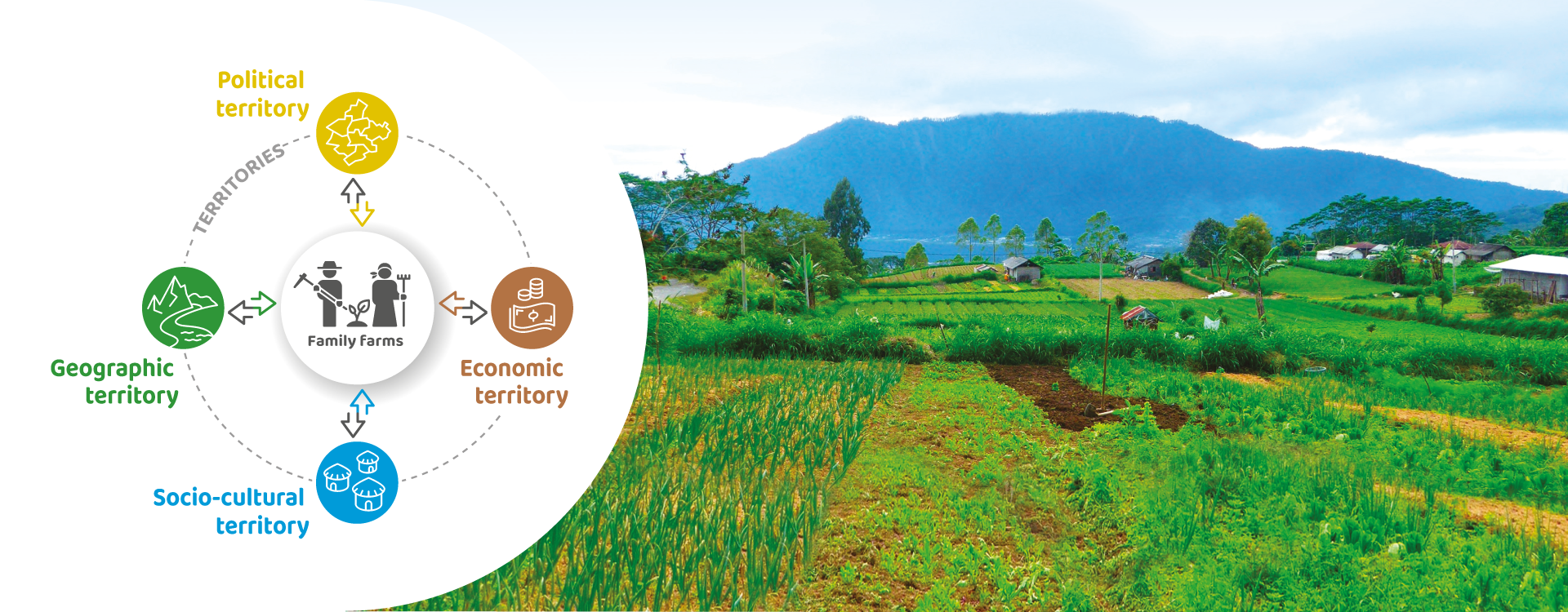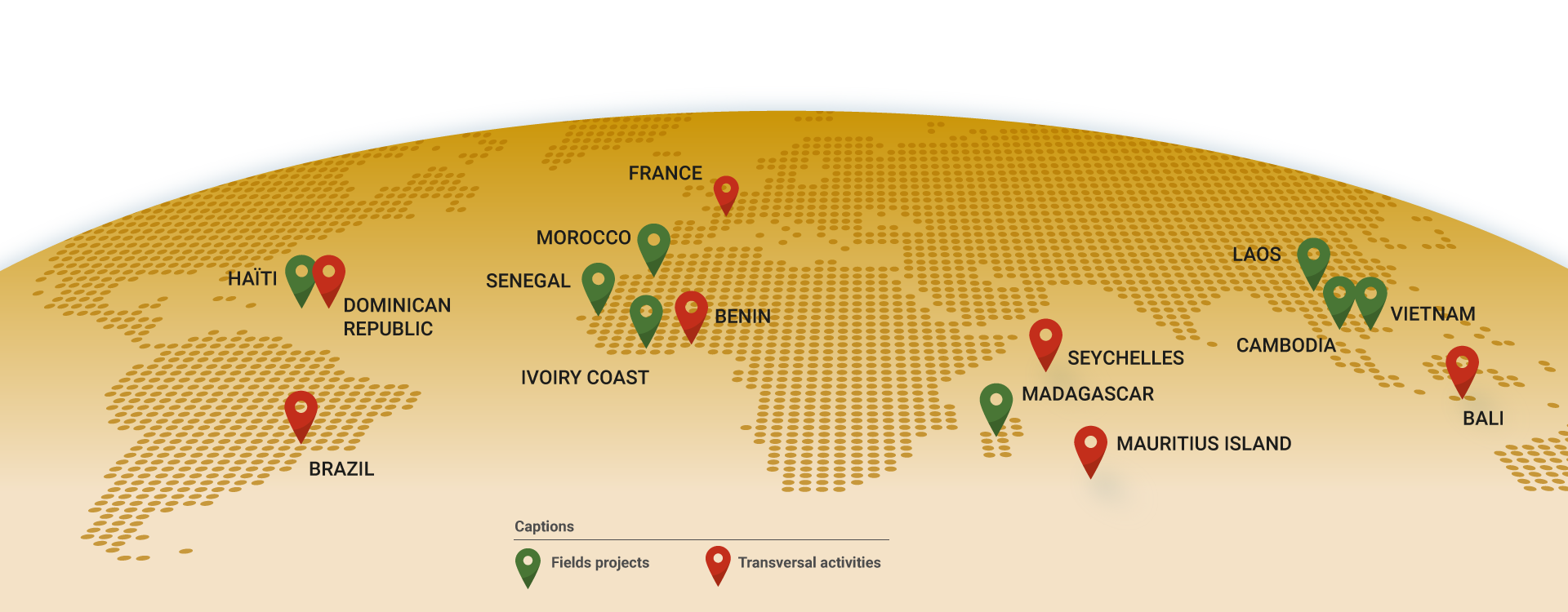Context / issue
The development of sustainable agriculture is not just about farms. There are indeed many external blocking factors such as weak infrastructure, difficulties in accessing production factors, unfavourable regulations, limited access to knowledge/information, etc.
Supporting agroecological transitions not only means providing solutions to the farms’ specific agricultural issues, but also working with different actors from different sectors, such as technical services of the equipment for the renovation of a market facilitating the sale of products training and research institutions to adapt and help the dissemination of knowledge, economic operators to ease supply/demand alignment, the authorities to establish regulations on the use of resources, etc.
The aim is to create an environment conducive to the development of sustainable agriculture.

The Agriter program: to initiate and implement territorial projects for sustainable agriculture supported by a complementarity of actors.
The Agriter program responds to a major challenge: the perception of territories as a framework for inclusive development, particularly regarding agricultural issues, income generation and food and nutritional security, but also as a place to live. This implies preserving agro-biodiversity, strengthening resilience, in particular considering climatic risks, and creating economic attractiveness.
Started in 2018 and organized in 3 successive phases of 3 years, this program includes field projects and transversal activities.

Field projects are currently being implemented in 8 countries (Cambodia, Haiti, Ivory Coast, Laos, Madagascar, Morocco, Senegal and Vietnam). They favor a complementary intervention:
-
At the level of family farms and agricultural value chains with the improvement of VSEs’ performances and the improvement of value chains’ operation
-
At the territorial level with the implementation of frameworks favourable to an agroecological transition through co-management mechanisms established with actors from different sectors
Transversal activities concern all the intervention countries of Agrisud and aim at strengthening and disseminating knowledge. They are organized around 3 axes:
- Skills transfer, by developing a digital resource centre, among other things
- General public awareness, especially towards young people
- Advocacy through social networks and North-South collectives, around themes such as agroecology, sustainable food systems and eco-responsible value chains.
The 1st phase of the program (2018-2020) structured the “territory” approach through the “Agriculture & Dynamics of the territories” guide.
The 2nd phase of the program (2021-2023) enabled the implementation and reinforcement of skills around the “Territory” approach. A digital resource centre was created to widely disseminate the program's achievements.
The 3rd phase of the program (2024-2026) aims to empower local players in the management of territories for sustainable agriculture.
---------------------------------------------------------------
The AGRITER Programme Agreement (2018-2026) is co-financed by :
- Agence française de développement
- Région Nouvelle-Aquitaine
- European Union
- Département des Hauts-de-Seine
- Agrisud and partners
Find the full list of financial and operational partners on the project sheets in the "Our actions" section or via the links below.
---------------------------------------------------------------
Find out more about Agriter field projects
- Cambodia > IADA project
- Ivory Coast > PROFIT project
- Haiti > PAD Nord project
- Laos > FORAE project
- Madagascar > MAHAVOTRA project
- Morocco > PAPSA project
- Senegal > PRPA project
- Vietnam > IDEAS project



